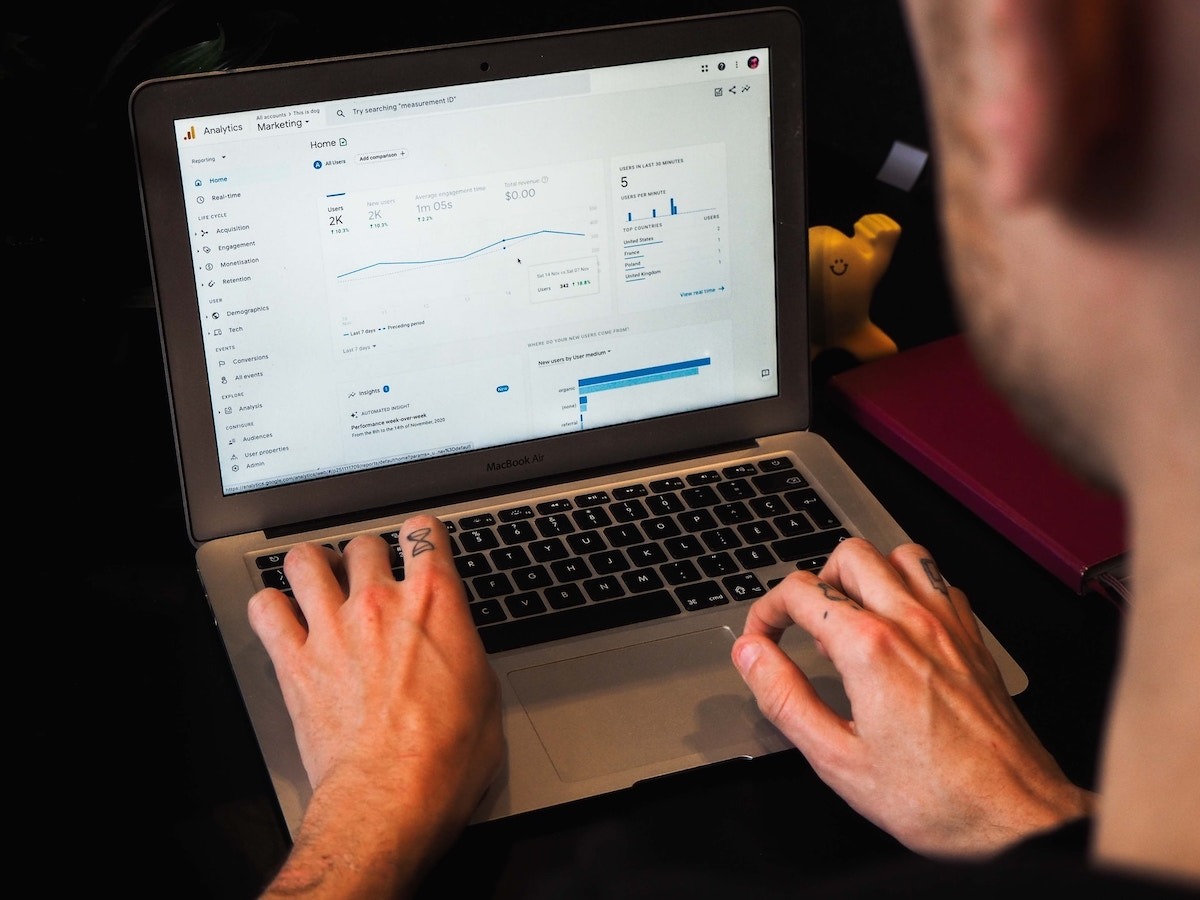Self-promotion on social media is a must in the modern world of competitiveness. Social media is not a simple sharing tool; it is a potent resource for building a personal brand, improving reach, and connecting with a target audience.

Social media marketing can also translate to higher public visibility and opportunities for everyone, whether you are a person or a business. Appropriately used social platforms such as Instagram, LinkedIn, TikTok, Facebook, and Twitter help users reach people worldwide, showcase their skills, and market their beliefs.
Knowing how to leverage these tools could be the difference between being among the many and making a mark. Check out this comprehensive guide to strategies, tools, and tips for strategically leveraging social networks to build a powerful personal brand, grow an audience, and achieve career goals.
Basics of Social Media Marketing
Social media marketing requires strategy, creative endurance, and consistency. Knowing the fundamentals provides a clear path for marketers to follow to reach their goals. It involves understanding your audience, selecting the right platforms, crafting engaging content, and leveraging analytics to optimize performance.
If you try to get agency ad account support to streamline campaign management and access advanced tools for maximizing ROI. Mastering these basics ensures a strong foundation for building successful campaigns and achieving long-term success.
Importance of Social Media Marketing
Social media offers unique opportunities to do the following:
- Reach a wider audience.
- Content provides an opportunity to build trust.
- Generating traffic for websites or landing pages
- More Econsultancy training courses
- Hire the best
Building the Foundation for Social Success
Set clear goals, such as increasing followers, generating leads, or promoting a product. Use measurable metrics to evaluate progress.
Know the demographics, interests, and behaviors of your target audience. Develop mock personas to guide you in tailoring content.
Concentrate on channels that fit your objectives. LinkedIn is a good choice for professionals, while visually inclined endeavors will do great on Instagram and TikTok.
You should create a posting schedule to post various types of content. Tools like Hootsuite or Buffer help you take charge and organize posts.
Building a Notable Personal Brand
A personal brand is how others see you online as an individual or business. Building a strong brand requires consistency, authenticity, and a message.
Specialize in a particular field. This creates a specialized market space that attracts an audience interested in your specific offering.
Build a tone and style that mirror your personality or company ethos. Keep the same across any platform.
Build trust and credibility with testimonials from previous clients, certifications, or special skills. Keep LinkedIn a place for professional achievements and use Instagram as a storytelling and creative venue.
Use consistent colors, fonts, and logos on all profiles. Canva and Adobe Spark are helpful tools for creating nice graphics.

Developing Content That Engages & Adds Value
Content is the essence of social platform marketing. Consistently producing quality content will help you gain followers, grow relationships, and reach marketing goals.
Post industry tips, tutorials, or how-to guides. Educating posts establish authority and offer followers something of value. Post motivational posts, quotes, or personal success stories to connect your audience emotionally.
Share glimpses of your daily life, creative processes, or works in progress with followers. Behind-the-scenes content personalizes a brand. Use polls, quizzes, and Q&A sessions to engage your audience and gain insights.
How to Build Your Following on Social Platform
Simply posting regularly will not grow an audience. It requires strategic planning, purposeful efforts, and authentic engagement.
Including both popular and niche hashtags for more discoverability. Do not stuff posts with unrelated tags.
Collaborate with influencers, businesses, or creators from your niche. Cross-promotions allow you to showcase your brand to broader audiences.
Respond to comments, engage in conversations, and recognize your followers. Engagement builds rapport, community, and loyalty.
Run contests to encourage participation and gain new followers. This is where you need to ensure that your rewards align with your brand values!
Analytics You Can Do Something About
Analytics are key to understanding how your social platform efforts resonate with your audience. Using data lets you know what works best to improve engagement, reach, and effectiveness. Here’s a step-by-step guide on how to use analytics efficiently.
Monitor Key Metrics
Monitoring specific metrics gives you an insight into how effective your social platform efforts are. Focus on metrics such as:
- Engagements (likes, shares, and comments): These demonstrate how much your audience interacts with your information and how relevant your topic is
- Click-Through Rates (CTR): How well your posts convert people to click on your website or landing pages
- Follower Growth: A consistent rise in followers indicates your brand’s increasing popularity and reach
- Impressions and Reach: Know that your content is being seen
Tracking these metrics regularly helps ensure you know about strengths and growth opportunities.
Use Platform-Specific Tools
Utilize the analytics tools included by social platforms:
- Instagram Insights: Public account users monitor post impressions, follower demographics, story performance, etc.
- Facebook Analytics: Free tool to measure page views, post engagement, and audience trends
- Twitter Analytics: Offers insights into tweet performance, audience interests and engagement rates
- LinkedIn Analytics: Emphasizes audience demographics, post engagement, and click-through rates for professional networks
This means these tools are intuitive and related to that specific platform, allowing you to interpret and use your data.
Create Specific Aims and Milestones
Set specific goals for your social platform campaigns, such as increased brand awareness, more website traffic, or improved customer engagement.
Track your progress against your goals using analytics. This means you set benchmarks for yourself based on your past performance, so you have something realistic and measurable to work with.
Incorporating Insights to Modify Strategies
How to leverage the learned data from analytics to improve your social media strategy:
- Analyze Posting Times: Facilitate best time scheduling by knowing when your audience is online.
- Content Format Experimentation: Research which content format — be it videos, carousels, or infographics — works best and give priority to those formats
Tip: Look for posts with a significant level of engagement, analyze the interactive techniques employed, and use them in future campaigns if they were proven effective in the initial one.
For instance, based on analytics, if your video posts have higher engagement, invest more in video content.

Segment Your Audience
You will often find nuanced trends within your audience when looking at analytics. This can inform how you diversify your content for various demographics, interests, or behaviors. One way is by which personalized content can significantly boost engagement and conversion rates.
Track Campaign Performance
Tracking ROI and success using analytics—on social media campaigns, for example. This includes measuring tasks like conversions, lead generation, or sales tied to the campaign. Review the data and evaluate performance against your campaign goals.
Leverage Third-Party Tools
While platform-specific tools are great, third-party tools like Hootsuite, Buffer, or Sprout Social provide cross-platform analytics and advanced features. These tools allow you to compare your social media performance holistically.
Regularly Review and Iterate
Social media trends and algorithms are constantly evolving. Keeping track of your analytics allows for regular updates about what’s working and what’s not. Continuously optimize your approach with fresh data to sustain and enhance performance.
Analytics is key to converting raw data into actionable insights that drive your social media strategy toward results.
Using Paid Social Media Ads
Investing in paid ad campaigns can help increase visibility and draw in targeted traffic. Social media advertising offers a diverse range of ad formats, depending on your marketing objectives.
Set a Budget
Decide how much you’re willing to spend on ad campaigns. Always start with a small budget, and as it proves itself, scale up.
Target the Right Audience
Narrow your reach (demographic filters) based on age, location, and interests.
Choose Effective Ad Formats
Test video, carousel, and story ads and see what works.
Track Performance
Monitor ad performance and ROI using analytics tools like Facebook Ads Manager or LinkedIn Campaign Manager.
Develop Relationships with Social Media
Most social media functions solely on connection and interaction. Establishing authentic personal connections with your followers will ensure accuracy and fidelity.
Be Responsive
Respond immediately to messages, comments, and mentions to let your audience know you care.
Host Live Sessions
Leverage live video features to interact with your audience at the moment. Post updates, respond to questions, or offer tutorials.
Acknowledge Followers
Feature user-generated content and tag the creators. Such small gestures create goodwill and deepen community relationships.
Social Media: How to Last Long-Term
Success on social media requires continuous input, refinement, and adaptation. Marketing trends keep evolving, and businesses need to adapt to these changes, which require new strategies.
- Stay Updated
Be in the loop about the latest trends and algorithm changes.
- Experiment Regularly
Experiment with different content formats, platforms, or posting times to learn what works best.
- Network Consistently
Connect with industry influencers, peers, and followers to broaden your impact.

Buy Agency Ad Account
Getting an agency ad account is a strategic step taken by businesses and marketers who want to improve their campaign management and achieve higher ROI.
These accounts give you the advanced tools and analytics you need to scale up your efforts for targeted campaigns. Here, we must discover some of the most exceptional platforms to get or handle the agency ad accounts appropriately.
- Uproas.io
Uproas.io is an agency and account-only platform. Its account setup is smooth, pricing is competitive, and support is extensive for businesses of all sizes.
- Adspace Marketplace
Adspace Marketplace allows agencies and businesses access to premium ad accounts across multiple networks. It provides a reliable solution for purchasing or renting accounts according to campaign requirements.
- SocialPlug
SocialPlug is the most popular for buying agency ad accounts, especially for social media ads. High-quality accounts For compliance and optimal performance
- AdBroker Hub
AdBroker Hub, on the other hand, deals in verified agency ad accounts for Facebook, Google, and TikTok. With an extensive network, advertisers have access to various accounts to cater to distinct advertising goals.
Conclusion
Today, mastering how to market yourself on social media is one of the most excellent skills you can cultivate. Building a personal brand using analysis and paid marketing is a boundless opportunity.
By helping make accurate statements, connecting with viewers, and incorporating trends, you can build a robust and successful success and reach your long-term goals.